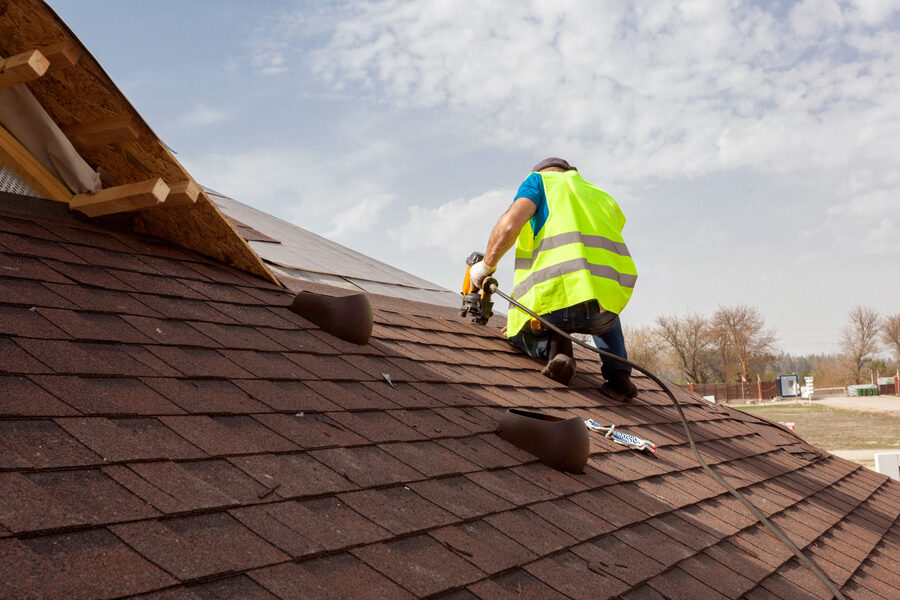10 Tips to Choose the Right Roofing Contractor for Your Home
10 Tips to Choose the Right Roofing Contractor for Your Home

When it comes to ensuring the safety and protection of your home, selecting the right roofing contractor is paramount. A well-installed and maintained roof not only enhances the aesthetic appeal of your house but also safeguards it from the elements.
However, with numerous roofing contractors in the market, choosing the right one can be daunting. To help you make an informed decision, we have compiled a list of ten essential tips to consider when selecting a roofing contractor for your home.
Research Local Roofing Contractors
Begin your search by researching local roofing contractors in your area, specifically targeting those with a reputation for quality work. Look for companies that have been serving the community for a significant period, as their longevity can indicate their reliability and expertise. Additionally, check online review platforms and ask for recommendations from friends, family, or neighbors who recently repaired or replaced their roofs.
Verify Credentials and Licensing
Before hiring any roofing contractor, verifying their credentials and licensing is crucial. Ensure that the contractor holds all the necessary permits and licenses required by your local authorities to perform roofing work. A licensed contractor demonstrates their commitment to adhering to industry standards and building codes, giving you peace of mind regarding the quality of their work.
Check for Insurance Coverage
Roofing projects involve certain risks, such as accidents or property damage. To protect yourself from liability, choosing a contractor with adequate insurance coverage is vital. Request proof of both liability insurance and workers’ compensation insurance. Without these, you could be held responsible for any accidents or injuries on your property during the roofing project.
Look for Experience and Expertise
Experience plays a crucial role in the roofing industry. Look for contractors with extensive experience in handling projects similar to yours. A contractor with years of experience has likely encountered a wide range of roofing issues and has the knowledge and skills to handle any challenges. Additionally, consider their expertise in the specific roofing material you intend to use, as different materials require different installation techniques.
Review Past Projects and References
Ask the roofing contractor for a portfolio of their past projects. This will give you a visual representation of their workmanship and the quality of their installations. Furthermore, request references from their previous clients. Take the time to contact these references and inquire about their overall experience with the contractor. This will provide valuable insights into the contractor’s professionalism, reliability, and customer service.
Seek Warranties and Guarantees
A reputable roofing contractor should offer warranties and guarantees on their work. Ensure that the contractor provides written warranties for both the materials used and the installation. This protects you against any defects or problems that may arise after the completion of the project. Additionally, carefully review the terms and conditions of the warranty to understand what is covered and for how long.
Obtain Multiple Quotes
It is always advisable to obtain multiple quotes from different roofing contractors. This allows you to compare prices, services, and materials to make an informed decision. When requesting quotes, be specific about the scope of work, materials you prefer, and any other relevant details. Remember that the cheapest option may not always be the best choice. Consider the contractor’s reputation, experience, and material quality when deciding.
Check for Proper Communication
Effective communication is essential throughout any roofing project. Choose a contractor who is responsive, transparent, and communicates clearly. They should be able to address your questions and concerns promptly and keep you informed about the project’s progress. Good communication ensures everyone is on the same page and helps prevent misunderstandings or delays.
Consider Local Knowledge
Opting for a roofing contractor familiar with the local climate and building regulations can be advantageous. Local contractors have a better understanding of the weather conditions in your area and can recommend suitable roofing materials that can withstand the specific climate. Moreover, they are well-versed in local building codes and can ensure compliance with the necessary regulations.
Trust Your Gut Instinct
Lastly, trust your instincts when choosing a roofing contractor. Pay attention to how they make you feel during your interactions. A reliable contractor will inspire confidence and provide the necessary information and guidance without pressuring you to make quick decisions. If something feels off or you have doubts about a contractor, it’s best to continue your search until you find one you are comfortable working with.
Selecting the right roofing contractor is a crucial decision that can significantly impact the integrity and longevity of your home’s roof. By following these ten tips, you can make an informed choice and ensure that your roofing project is carried out professionally and with the utmost quality.
Remember to research local contractors, verify their credentials, check for insurance coverage, review past projects, seek warranties, obtain multiple quotes, prioritize good communication, consider local knowledge, and trust your instincts. By doing so, you can confidently choose the right roofing contractor for your home and enjoy a sturdy and reliable roof for years to come.
Key Takeaways
- Research local roofing contractors with a good reputation and longevity in the industry.
- Verify the credentials, licensing, and insurance coverage of the contractor.
- Choose a contractor with ample experience and expertise in handling similar projects.
- Review past projects and obtain references to gauge the contractor’s workmanship and customer satisfaction.
- Look for warranties and guarantees on both materials and installation.
- Obtain multiple quotes and consider factors beyond price, such as reputation and quality of materials.
- Ensure effective communication throughout the project.
- Consider hiring a contractor with local knowledge of climate and building regulations.
- Trust your instincts and choose a contractor who inspires confidence and provides necessary information without pressure.





